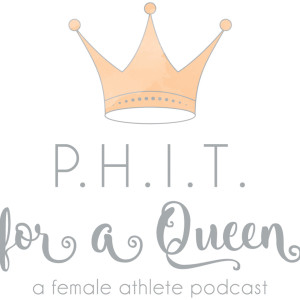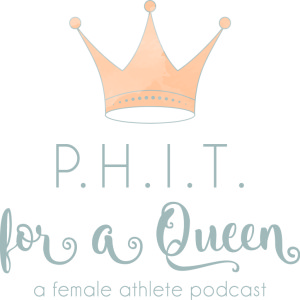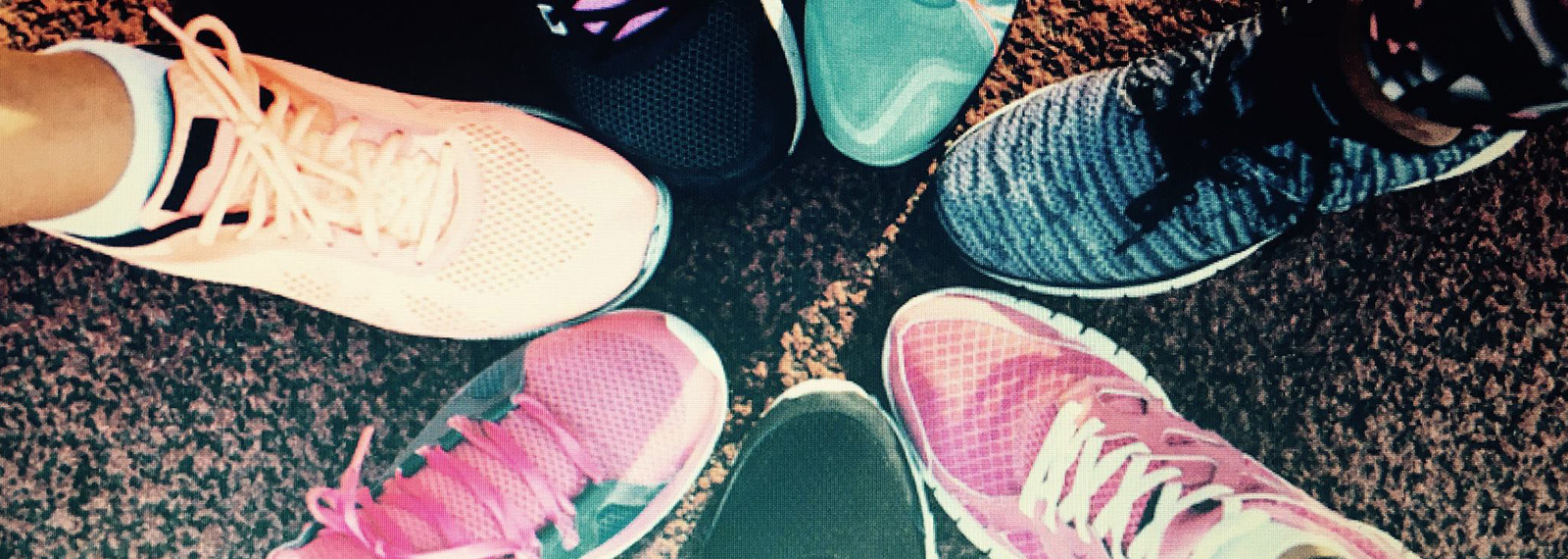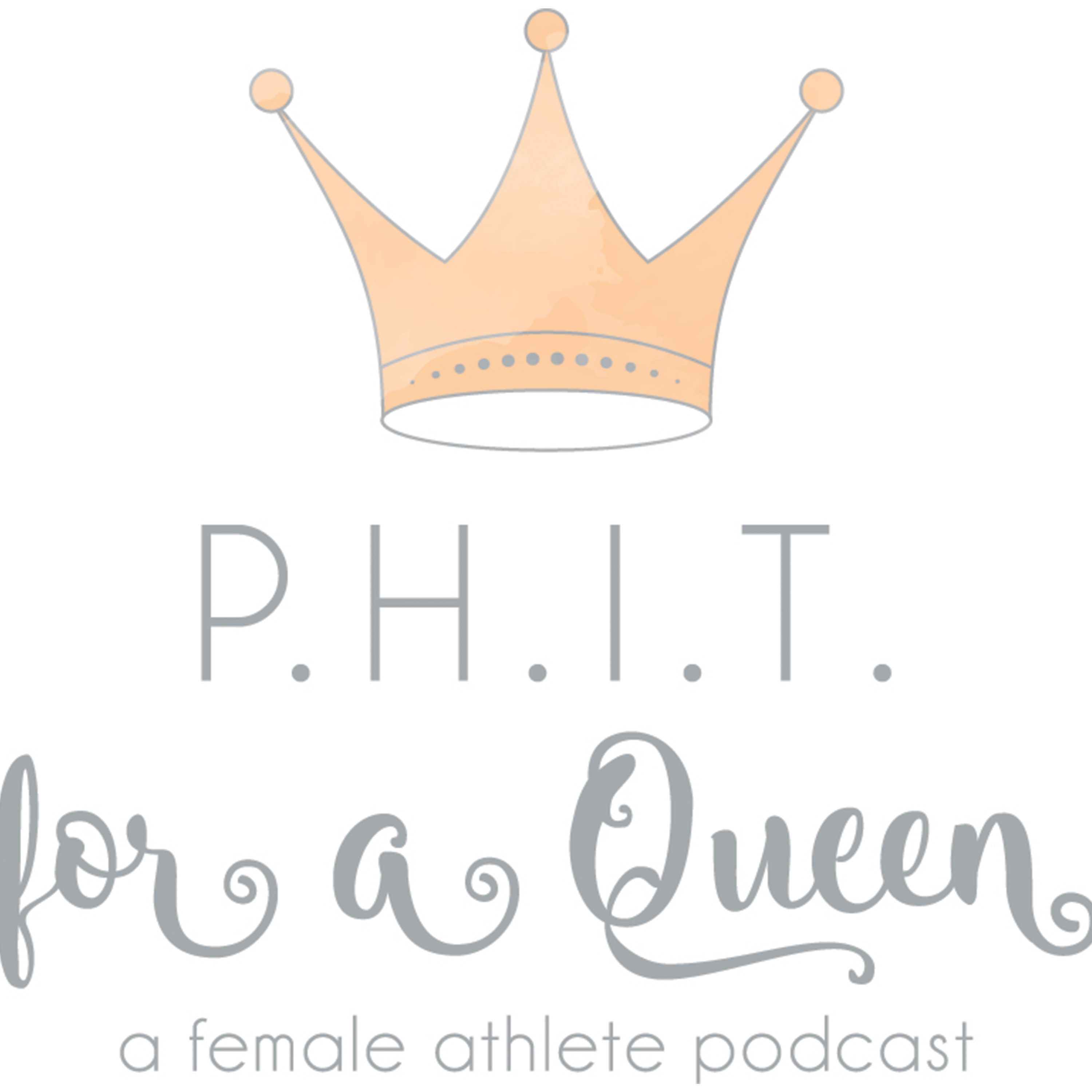Episodes

Friday Mar 27, 2020
You’ve got to give your body a chance to talk back to you.
Friday Mar 27, 2020
Friday Mar 27, 2020
Tammy Beasley shares on PHIT for a Queen that you’ve got to give your body a chance to talk back to you. You really can learn to hear it, and your body can learn to trust you. But, it’s mutual trust, and both have responsibility.

When you have an eating disorder, there’s shame and darkness; a secret. The eating disorder has the power when you hide it – it’s a secret in a black hole. But when you expose it to the light – to relationships and to seeking health – it can’t survive. That’s the beginning of the end of the eating disorder.
As a society, we have never been so rigid and judgmental about our food. We are not giving ourselves any freedom to be an individual and listen to our own bodies. We have to follow this plan or do this and do that. We are a beautiful life, not machines. We can’t put in data and get out data. Calories in versus calories out isn’t a real thing. It doesn’t work that way.
We’ve pushed ourselves out of the driver’s seat completely with our relationship with body and food. Everything in our culture now is forcing us into the passenger’s seat, saying there’s only one way to eat. We are so opposite in our culture with food and body than we are in embracing diversity in any other way.
People sometimes think they have to micromanage everything about their bodies. The body is so much bigger and better than that. It’s really incredible how much the body gives to us. It takes the rigid things we give it and works to the best of its ability. Over time, however, micromanaging your body takes a toll. We need to get back to an intuitive place; realizing my body is not your body or anyone else’s body. And my body’s life story at this very moment is unique.
Trusting our body to communicate with us is a skill. It’s not easy, but it’s worth it. It’s putting yourself back in the driver’s seat.
It’s important to realize we are always growing as a person and growing in our own appreciation of what our body does for us. It’s a daily decision to say “this is good” to change. Change is different. It doesn’t mean it’s bad if it’s different; it’s just different.
Check out Tammy and Alsana, offering new hope for clients searching for recovery: https://www.alsana.com/
So you know Tammy is legit –
Tammy Beasley, RDN, CEDRD, CSSD, LD, is vice president of clinical nutrition services for Alsana. Tammy has devoted the majority of her 30+ years of experience as a registered dietitian to the field of eating disorders. Having recovered from an eating disorder herself, Tammy is passionate about sharing hope in recovery and is known for her innovative counseling techniques that help clients restore a nurturing relationship with both food and body.

Friday Mar 20, 2020
We are Made to Move: Exercise and Eating Disorder Recovery
Friday Mar 20, 2020
Friday Mar 20, 2020
We are Made to Move: Exercise and Eating Disorder Recovery
Join us as we speak to Dr. Brian Cook, whose research focuses on the etiological role and therapeutic potential of exercise in eating disorders. We look at the benefit of addressing exercise in eating disorder treatment and treatment tools that can be used.
- We don’t have an upper limit to how much we exercise but should there be one? With eating disorders, this is probably a good point to address.
- Cook believes we must address exercise in treatment just like we do food. We have a professional and ethical obligation to help discern all of the issues that surround exercise and eating disorder treatment. Our bodies are built to move.
- Intervening on the compulsive aspect of exercise to be able to unlock the potential the benefit of exercise without disordered behavior.
- We do know that we can use exercise appropriately in treatment to strengthen the body and also the brain and how the brain connects to the body.
You Know He’s Legit
Dr. Cook’s research focuses on the etiological role and therapeutic potential of exercise in eating disorders. His education at the Universities of Rhode Island and Florida and an NIMH funded postdoctoral fellowship provided training under experts in the eating disorders field. He has consistently presented research at international level conferences – including a keynote address at the International Association of Eating Disorders Professionals conference in 2017, published in leading journals, and written several invited book chapters. These accomplishments provide strong evidence of his passion for improving the lives of individuals and his potential for continued impact in the field of eating disorders. He has translated this research into clinical practice in his role as V.P of Movement, Research, and Outcomes at Alsana Eating Disorder Treatment & Eating Recovery Centers.
To find out more about Dr. Cook’s work and the treatment at Alsana Eating Disorder and Treatment Centers Go To:

Friday Mar 13, 2020
Friday Mar 13, 2020
Pappas shares on PHIT for a Queen that preventing injury in young female athletes comes down to recovery. Humans are able to adapt to about anything if provided enough recovery for the training modality.
We have not really portrayed female athletes in science the way we should. The research is far behind in understanding the menstrual cycle and in claiming that certain hormones cause injuries.

The majority of young female athletes have menstrual cycle irregularity, primarily related to energy availability. Studies are beginning to show a relationship between those irregularities and soft tissue injuries.
In an overuse injury, we are chronically exposing the tissue to more force than it’s able to handle or recover from. We need to increase the strength of muscles, tendons, and ligaments and also learn to move our bodies in coordination so more muscle fibers within a muscle or more muscles, in general, are working together to absorb these forces.
Strength training must progressively overload and then allow for recovery.
Strength training is so important for any female athlete, regardless of whether she has any type of “predisposed risk” to injury or not.
There is no adaptation without recovery.
Some of the best athletes in the world are training hours and hours a week, but they are improving because they are notching that hard work with the appropriate recovery.
In a culture that says, “Don’t sleep, work hard, head down,” I like to say, “Work hard, but also work smart.”
Check out Emily and Relentless Athletics: https://www.relentlessathleticsllc.com/
So you know Emily is legit –
Emily Pappas is the founder of Relentless Athletics in Hatfield, Penn. She has a Master of Science degree in educational physiology and is an adjunct at Temple University, instructing a course on the development of female athletes. Emily has experience coaching and programming at the Division I collegiate level, working as an assistant strength coach for an internship with Temple University’s women’s rugby team. Emily holds her USAW Sport Performance certification. Her company specializes in female athlete development through strength training, sports nutrition, and sports injury rehabilitation.




